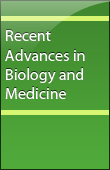


Crocin (a water-soluble carotenoid) is the most abundant antioxidant among active constituents of Crocus sativus. Crocin has protective effects on brain, skeletal muscle, and kidney ischemia-reperfusion injury models via its antioxidant properties. The protective and anti-inflammatory effect of crocin against L-methionine-induced hyperhomocysteinemia (HHcy) in rats was evaluated. Thirty male albino rats were divided into three equal groups. Group I (control normal): rats fed ordinary diet without any treatment. Group II (L-methionine-induced HHcy): rats received L-methionine (1.7 g/kg body weight/day) orally for 8 weeks continuously. Group III (HHcy 1 crocin): rats received crocin in dose (50 mg/kg body weight/day, I.P.) for 4 weeks after induction of HHcy. The results obtained showed a significant increase in serum Hcy concentration and upregulation of NF-kβ gene expression in liver tissue and also in the gene expression level of TIMP-1, MMp-9, MCP-1, Caspase-3, and PPARα in heart tissues with significant downregulation of serum miRNA188 gene expression level in hyperhomocysteinemic (HHcy) rats. However, crocin treatment to HHcy induced in rats significantly improved all previous indicators to its normal ranges. The histopathological findings revealed that crocin treatment markedly reduced the HHcy-induced pathological changes and displayed marked improvement with normal histological architecture of the heart and brain tissues. These results suggested that crocin had a potentially ameliorating role with powerful anti-inflammatory and anti-apoptotic effects on cardiac tissue, as revealed by suppression of proinflammatory mediators and secretion through inhibition of NF-kB signaling pathways, which may lead to upregulated miR-188 gene expression, suppress proapoptotic Caspase-3, and may protect from heart tissue injury against HHcy.
Read Article